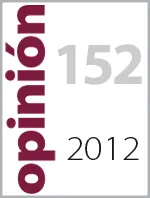Are Spaniards Still Europeanists?

Laia Mestres,
Researcher, CIDOB
13 June 2012 / Opinión CIDOB, n.º 152 / E-ISSN 2014-0843
Is the economic crisis having an effect upon one of the most immutable principles of democratic Spain, the traditional Europeanism of the Spanish that saw belonging to the European Union as the key factor in the modernization and international prestige of Spain?
The political elites are reasserting their Europeanism. In an unprecedented gesture, in early February Minister José Manuel García-Margallo reached an agreement with all the previous Ministers of Foreign Affairs of democratic Spain to publish a joint article in El Mundo affirming that "it is time to contribute with ideas and political support, from a firm Europeanist conviction, to any initiatives aimed at improving the functioning of the European Union." These same words could have been part of the discourse of a Spanish leader on the solemn act of accession to the European Communities in 1986. The Spanish European policy, now as before, is still considered as a matter of State policy. The idea of "More Europe" has formed and continues to form a substantive part of the consensus among the main political forces of the country. It is perhaps the last redoubt of the long-forgotten consensus in foreign policy.
But according to Eurobarometer data, as the crisis has become more severe, the trust of Spaniards in the EU has diminished drastically. In late 2009, just before the most recent Spanish Presidency of the Council, 43 percent of Spaniards declared that they tended not to trust in the European Union. Two years later, in 2011, this figure had reached 62 percent. The Spanish attitude is no exception. Not only countries that have undergone intervention, such as Greece and Italy, but others, as well, such as France and the United Kingdom, have seen a notable increase in the degree of lack of confidence in European institutions.
Support for the single currency has been one of the great casualties of the crisis. At first glance, 70 percent of Spaniards consider that the introduction of the euro has been of little or no benefit to the country, according to the December 2011 Barometer of the Real Instituto Elcano. Another poll, conducted by the Pew Global Attitudes Project in May 2012, offered some perspective on this percentage, placing it at 41 percent, though it is worth adding to this the 22 percent of Spaniards who consider that the euro has not had a positive effect. Though the Spanish people see defects in the single currency, they still think that abandoning it would be an even more harmful scenario, and they reject a return to the peseta by a broad majority.
In addition to this refusal to abandon the euro, Europeanism is shored up by the degree of satisfaction of the Spanish people due to belonging to the EU. The past ten years of Eurobarometer polls indicate that the percentage of Spaniards who claim to be satisfied with the European Union remains unchanged. To be specific, six out of ten Spaniards continue to believe that their country has benefited from being a member of the European Union on balance, a proportion that is well above the EU-27 average, which the Eurobarometer places at five out of ten.
With these data in hand, together with the political consensus surrounding the idea of "More Europe", it could be said that the Spanish people continue to support the process of European integration. Nevertheless, something is changing in Spain. On the one hand, the unconditional Europeanism of the Spanish elites prevails, though today more than ever, for internal consumption, these very elites choose to sell austerity policies as an imposition from Brussels. Moreover, the economic crisis has not only had a negative impact on Spain’s image abroad, it also has significantly reduced its room for political manoeuvre in the EU, not only on the economic agenda, but also on the political one.
On the other hand, faced with a possible return to two-speed Europe, both the Spanish and their Mediterranean neighbours are beginning to dust off the southern inferiority complex vis-à-vis the north. The redefinition of the idea of a two-speed Europe, which used to serve to dissociate Europeanists from Euro-sceptics, and which now seems destined to differentiate between rich and poor countries, has only made this feeling more emphatic. For the citizens of the south, this European modality means turning into second-class citizens because of the non-voluntary exclusion of the countries on the periphery from the hard core of the European Union.
All of this is producing a growing political disaffection of the citizenry at all levels: local, regional, national, and, of course, European. A sign of this is the fall in popularity of the German chancellor among Spanish citizens. Angela Merkel, who had maintained a position as one of the most highly valued world leaders, has been losing this support as Spain was approaching the bailout. In addition, a majority consider that she defends Germany's interests to the detriment of Spain's.
Political disaffection can only be combated with more participation and more discussion. The collateral damage of the economic crisis should be an irreversible distancing among the citizens of the European Union, or a perception of European integration as a legacy of the elites. "More Europe" can be constructed when citizens and political leaders alike take cognizance of the fact that our future is at stake in Brussels, and that the debate should entail a contrasting of models and not a confrontation between countries. The Spanish people must go beyond ingenuous Europeanism to construct a new Europeanism based on the awareness that the survival of the model of social cohesion depends on the reaffirmation of the common project, based on solidarity and inclusiveness on a European scale. A model no longer based on a "dream of Europe" but on the definition of a shared strategy to overcome the economic crisis and get European integration back on track.
Laia Mestres,
Researcher, CIDOB